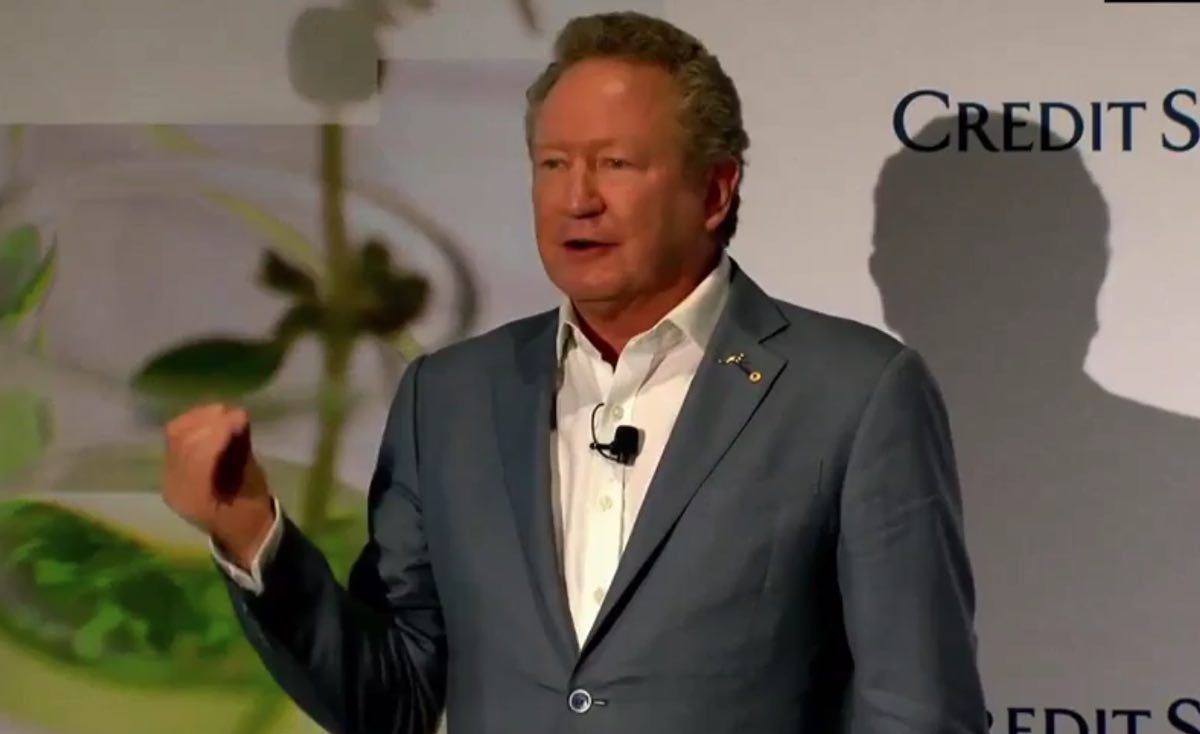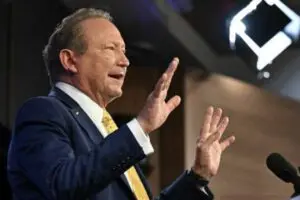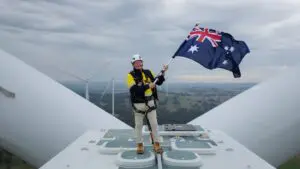Andrew Forrest, the second billionaire behind the spat that sent Sun Cable into voluntary administration this week, has weighed in on the drama, declaring “urgent change” is needed to deliver the company’s flagship project, the $35 billion Australia-Asia Power Link.
Speaking via Squadron Energy, a 15% stakeholder in Sun Cable, Forrest said he believed in the vision of the massive project that proposes to build tens of gigawatts of solar and battery storage capacity in Australia’s north, but that major changes in the execution were needed.
“Squadron Energy believes in the vision but believes the manner in which the project is delivered needs urgent change,” said a statement signed off by Squadron Energy chair John Hartman.
“Exceptional governance practices and world-class project delivery expertise, as well as pursuing bankable technologies, will be required to make the project a reality.”
The statement issued on Thursday afternoon amount to the first comment on the matter from Forrest, following the shock announcement on Wednesday that Sun Cable was entering voluntary administration.
The dramatic move by the company increasingly looks to be the result of a clash of ideologies between Forrest and Sun Cable’s other major backer, who is also the company’s chair, tech billionaire Mike Cannon-Brookes.
In his own statement, issued alongside the news of the move into voluntary administration, Cannon-Brookes sides himself firmly with the company’s founder and CEO David Griffin.
“Sun Cable has achieved so much since it was founded in 2018,” Cannon-Brookes said in the statement.
“I’m confident it will play a huge role in delivering green energy for the world, right here from Australia. I fully back this ambition and the team, and look forward to supporting the company’s next chapter.”
Sun Cable’s “marque” project, the Australia-Asia PowerLink, proposes to build up to 20GW of solar near Elliott in the heart of the Northern Territory, and 42GWh of battery storage, providing clean energy for green industry in Darwin and to Singapore through a 4,200km sub-sea cable.
The company had aimed to begin construction on the AAPLink next year, complete financial close by the start of 2024, start supplying 800MW of electricity capacity to Darwin in 2027, and to be in full operation – helping to power Singapore – by 2029.
Less than a year ago, Cannon-Brookes and Forrest led a $210 million fundraising round for the project via their respective satellite companies Grok Ventures and Squadron Energy.
The company is now in the hands of administrators Christopher Hill, David McGrath and John Park from FTI Consulting, as a path forward is sought.
In comments on the news on Thursday, federal energy minister Chris Bowen said he was “upbeat and excited”
about Sun Cable’s future, and the future of the huge AAPLink project.
“Certainly I’ve been speaking to very senior people in Sun Cable over the last 24 hours, they tell me that there is absolutely no reduction in their ambition, there is no change in their plans for this to be going forward as a very important investment in Australia,” Bowen said.
“It’s a change of approach and corporate structure, but of course in that regard that is entirely a matter for them,” he said.
Sun Cable has not yet received any federal government funding for AAPLink, or any of the further 11GW of proposed projects on its books, but the massive Northern Territory solar export project was awarded major project status by the federal Coalition government in 2020.










